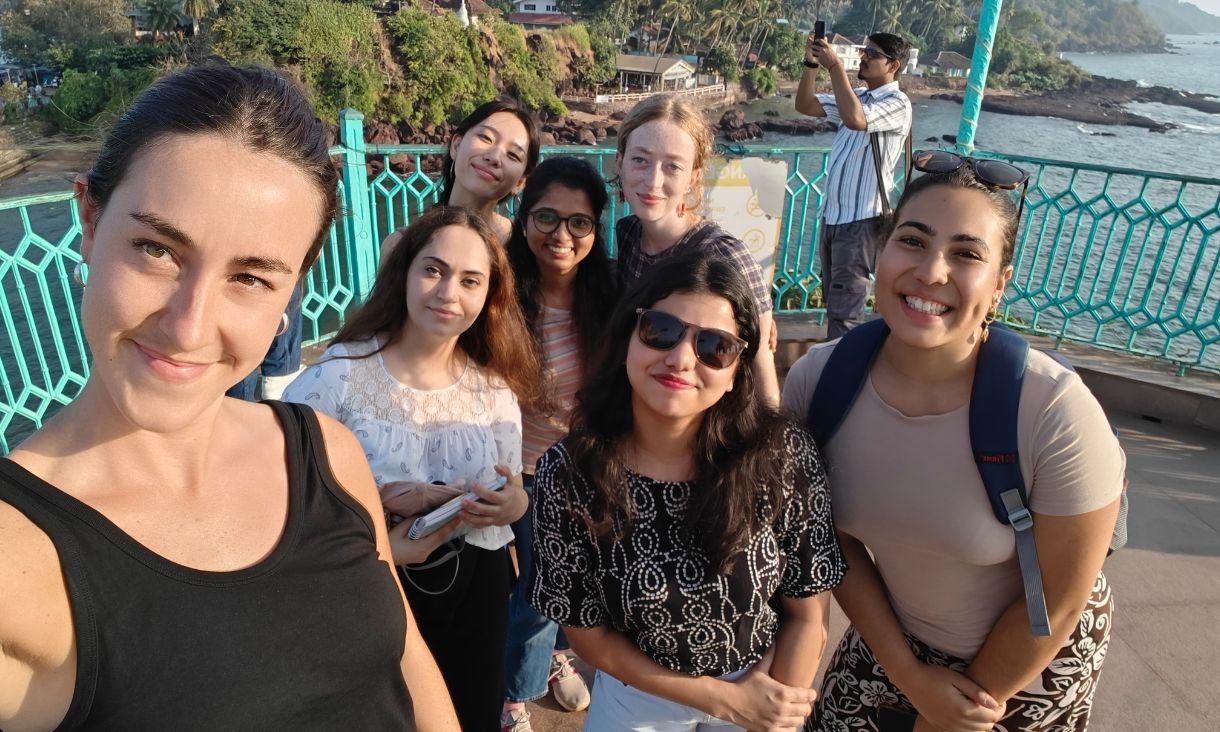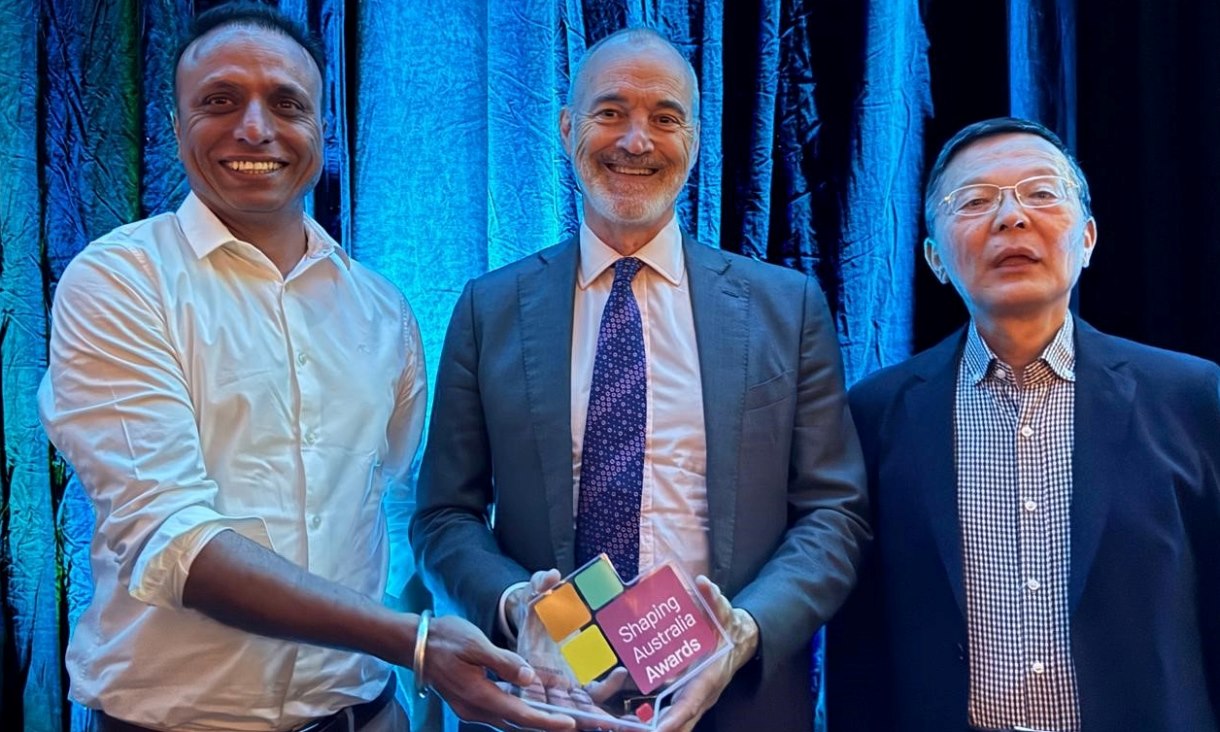Water movement on surfaces makes more electric charge than expected
Researchers from RMIT University and the University of Melbourne have discovered that water generates an electrical charge up to 10 times greater than previously understood when it moves across a surface.
RMIT students travel to India under BITS partnership expansion
Six students from RMIT’s Australia and Vietnam campuses travelled to BITS Pilani’s Goa campus for a study tour where they were immersed in Goan culture.
Coffee concrete wins national research award
RMIT University’s coffee concrete innovators have won an award at Universities Australia’s Shaping Australia Awards in the Problem Solver category, after tallying the most votes from the public.
Prosthetic leg donation program changes lives in Southeast Asia
A pioneering rehabilitation program has fitted more than 200 prosthetic legs and delivered 4,600 biomechanical therapy and counselling sessions in partnership with local programs across the region.




